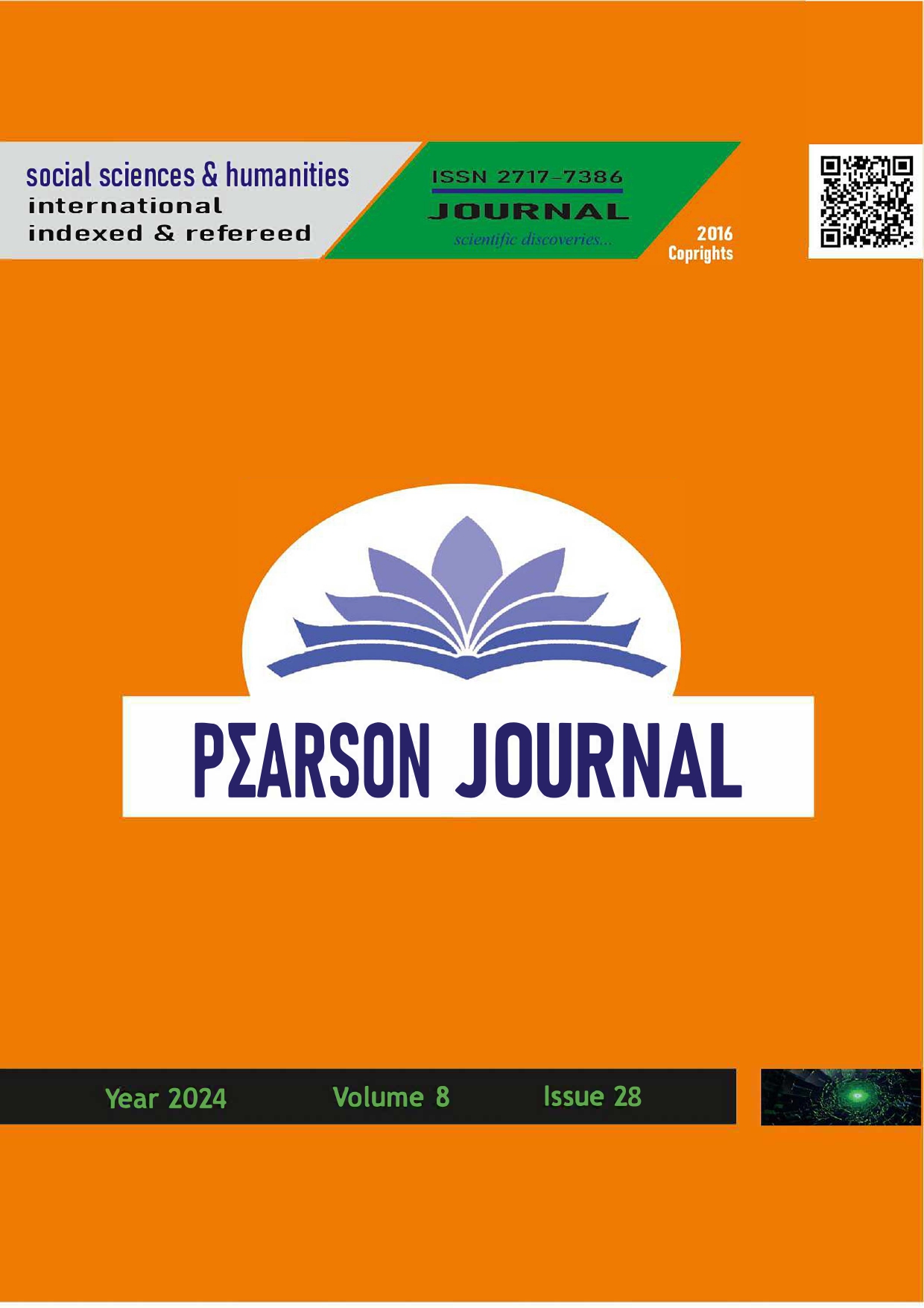A Systematic Review on Examining the Treatment of Bipolar Disorder with Cognitive Behavioral Therapy Method
DOI:
https://doi.org/10.5281/zenodo.11585099Keywords:
Bipolar Disorder, Cognitive Behavioral TherapyAbstract
The aim of this review study is to examine the use of Cognitive Behavioral Therapy in individuals with Bipolar Disorder. In this study, the systematic review method was used and no field study or any scale was used. Randomized controlled studies conducted in only English between 2001 and 2023 in the Google Scholar database, whose abstracts or full texts can be accessed with linkled keywords, were evaluated. This compilation study was carried out in two stages: February, 2024 and May, 2024. As a result of the literature review, 7 studies were considered. The 7 studies commented are randomized controlled trials. As a result of 7 studies, it was observed that CBT treatment had a positive effect on BD patients. The findings of this review concluded that cognitive behavioral therapy plays an accelerating role in recovery and is an effective method to achieve results in a short time.
References
Angst, J. (1998). The Emerging Epidemiology of Hypomania and Bipolar II Disorder. Journal of Affective Disorders, 143-151.
Angst, J. (2007). The Bipolar Spectrum. Br J Psychiatry, 190:189-191.
Akay, Ö. (2008). Bipolar Bozuklukta Kişilik Özelliklerinin Hastalık Seyrine Etkisi. (Yayınlanmış Uzmanlık tezi), Zonguldak Karaelmas Üniversitesi Tıp Fakültesi Psikiyatri Anabilim Dalı, Zonguldak.
Costa, R. T., Cheniaux, E., Rosaes, P.A.L., Carvalho, M. R., Freire, R.C.R., Versiani, M., Range, B. P., & Nardi, A.E. (2010). The effectiveness of cognitive behavioral group therapy in treating bipolar disorder: a randomized controlled study. Brazilian Journal of Psychiatry, 33(2).
Durkheim, E. (2013). İntihar. İstanbul: Pozitif Yayıncılık.
Gutierrez, G., Stephenson, C., Eadie, J., Moghimi, E., Omrani, M., Groll, D., Soares, C.N., Milev, R., Vazquez, G., Yang, M., & Alavi, N. (2023). Evaluating the Efficacy of Web-Based Cognitive Behavioral Therapy for the Treatment of Patients With Bipolar II Disorder and Residual Depressive Symptoms: Protocol for a Randomized Controlled Trial. JMIR Res Protoc, doi: https://doi.org/10.2196/46157
Jones, S. H., Smith, G., Mulligan, L.D., Lobban, F., Law, H., Dunn, G., Welford, M., Kelly, J., Mulligan, J., & Morrison, A.P. (2015). Recovery-focused cognitive behavioural therapy for recent-onset bipolar disorder: randomised controlled pilot trial. The British Journal of Psychiatry, 206 (1), 58–66.
Leopold, K., Bauer, M., Bechdolf, A., Correll, C. U., Holtmann, M., Juckel, G., Lambert, M., Meyer, T. D., Pfeiffer, S., Kittel-Schneider, S., Reif, A., Stamm, T.J., Rottmann-Wolf, M., Mathiebe, J., Kellmann, E. L., Ritter, P., Krüger-Özgürdal, S., Karow, A., Sondergeld, L. M., Roessner, V., Sauer, C., & Pfennig, A. (2020). Efficacy of cognitive-behavioral group therapy in patients at risk for serious mental illness presenting with subthreshold bipolar symptoms: Results from a prespecified interim analysis of a multicenter, randomized, controlled study. Bipolar Disorders an Internatıonal Journal of Psychıatry and Neuroscıences, 22(5), https://doi.org/10.1111/bdi.12894
Moher, D., Liberati, A., Tetzlaff, J., Altman, D. G., & The P.G. (2009). Prefferred Reporting Items for Systematic Reviews and Meta-Analyses: The PRISMA Statement. Annals of Internal Medicine.
Perich, T., Manicavasagar, V., Mitchell, P. B., Ball, J. R., & Hadzi-Pavlovic, D. (2013). A randomized controlled trial of mindfulness-based cognitive therapy for bipolar disorder. Acta Psychiatr Scand, 127, 333-343.
Saleh, A. (2010). Bipolar Bozuklukta Yaşam Olaylarının Hastalık Başlangıcından Önceki Sıklığı ve Hastalık Gidişi Üzerindeki Etkisinin Araştırılması. (Yayınlanmış Uzmanlık Tezi), Marmara Üniversitesi Tıp Fakültesi Psikiyatri Anabilim Dalı, İstanbul.
Scoot, J., Paykel, E., Morrıs, R., Bentall, R., Kınderman, P., Johnson, T., Abbott, R., & Hayhurst, H. (2006). Cognitive behavioural therapy for severe Cognitive behavioural therapy for severe and recurrent bipolar disorders: Randomised controlled trial. Brıtısh Journal of Psychıatry, 188, 313-320.
Sagar, V., Parikh, M.D., Zaretsky, A., Beaulieu, S., Lakshmi, N., Yatham, L., Young, T., Patelis-Siotis, I., MacQueen, G.M., Levitt, A., & Arenovich, T. (2012). A randomized controlled trial of psychoeducation or cognitive behavioral therapy in bipolar disorder: A Canadian network for mood and anxiety treatments (CANMAT) study. The Journal of Clinical Psychiatry, 73(6), 803-810.
Who World Health Organization [WHO]. (2022). Mental disorders, 2022. https://www.who.int/news-room/fact-sheets/detail/mental-disorders
Vieta, E., Berk, M., Schulze, T. G., Carvalho, A. F., Suppes, T., Calabrese, J. R., & Grande, I. (2018). Bipolar disorders. Nature Reviews Disease Primers, 4(1), 1-16.
Yazıhan, N., Doruk, A., Balıkçı, A., & Erdem, M. (2015). İki Uçlu Bozukluk Manik ve İyileşme Dönemlerindeki Bilişsel İşlevler: Bir İzlem Çalışması. Journal of Mood Disorders, 5, 62-68.
Yılmaz, O., Boyraz, R. K., Kurtulmuş, A., Parlakkaya, F. B., & Öztürk, A. (2020). Obsesif Kompulsif Bozuklukta İçgörünün Obsesif İnançlar ve Üstbiliş İle İlişkisi. Psikiyatri Hemşireliği Dergisi.
Zang Zhang, Y. S., Rao, W. W., Zeng, L. N., Grace, K. I., Cui, L. J., Li, J. F., & Xiang, Y. T. (2020). Prevalence and correlates of bipolar disorder in the adult population of Hebei province, China. Journal of Affective Disorders, 263, 129-13.
Downloads
Published
How to Cite
Issue
Section
License
Copyright (c) 2024 PEARSON JOURNAL

This work is licensed under a Creative Commons Attribution 4.0 International License.



